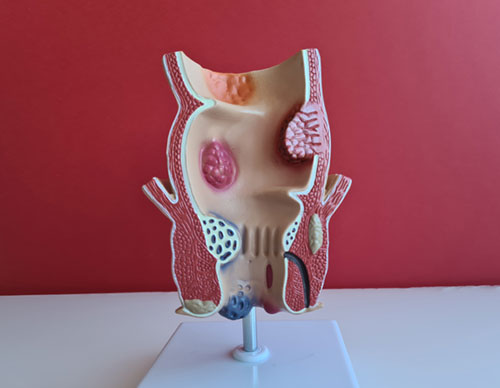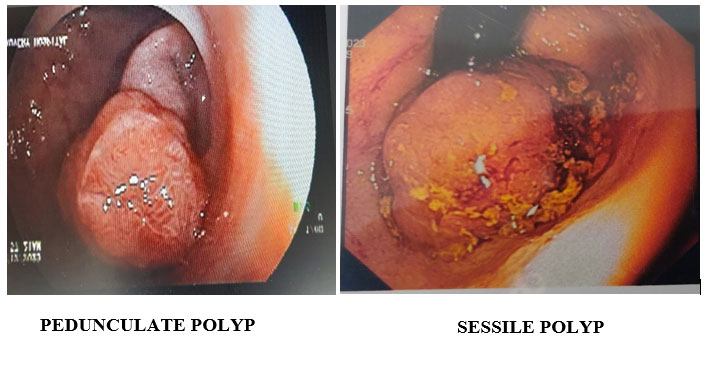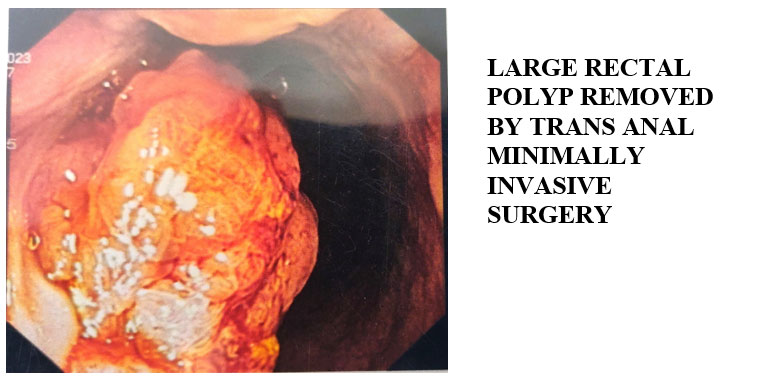
Polyp is an abnormal growth rising from the intestinal mucosa. Polyps can occur in any epithelial mucosa. Usually, small polyps in the colon and rectum are asymptomatic which can sometimes slowly grow and turn into colon cancer. Most of the rectal cancers develop from the polyps. Polyps are more common in older age, that is 40 – 50 percent of polyps form after the age of 50 years.
Classification of rectal polyps depends upon the size and shape. If it looks like a mushroom with a head and a stalk, it is a pedunculated polyp. Some polyps look like raised lumps with broad bases – they are called sessile. If the size of the polyp is less than 1 cm, there is minimal risk of cancer; if it is more than 2 cm, then there is a 20 – 30 percent risk of cancer.

What Are the Common Symptoms and Causes for Rectal Polyps?
Many of the rectal polyps are asymptomatic. Hence, the screening test is very important for those above the age of 50 years. If symptoms are present, they could include rectal bleeding, altered bowel habits, anemia, mucous discharge, mass protrusion from the anus and lower abdominal pain. Some people have hereditary history that causes colon polyps; some develop cancerous cells. Other causes include aging, smoking, heavy alcohol, high-fat diet, obesity and inflammatory bowel disease.
How to Diagnose Rectal Polyp and What Is Considered to Be Abnormal?
Most of the rectal polyps can be diagnosed by digital examination and sigmoidoscopy or colonoscopy. Other investigations are genetic tests, CBC, stool occult blood and CECT abdomen. Under microscopic examination, polyps can be classified into neoplastic (precancerous) and non-neoplastic (non-cancerous) polyps. Neoplastic polyps (30-40%) can turn into cancer cells. Neoplastic polyps include adenomatous, sessile serrated lesion and traditional serrated adenoma (tubulo–villous as 20% and villous adenoma as 40% risk of cancer). If the rectal polyps are larger than 10 mm and there is a hereditary syndrome, they are to be considered for removal.
How to Manage Rectal Polyp?
Most of the rectal polyps are removed through the endoscopic method (EMR) safely when they are small and accessible. If the rectal polyp is too large and not accessible, it may require surgical management for removal with a new technique (trans-anal minimally invasive surgery) which can be done as a day-care procedure.

How to Prevent Polyps from Forming?
At least 30-40% of patients have a risk of developing new polyps in other places after endoscopic removal. Genetic causes like polyposis coli syndrome require total removal of the rectum and colon. The way to prevent colorectal cancer is by taking good care of our general health with regular check-ups, eating a healthy diet, regular exercises, regular bowel habits and avoiding alcohol and smoking.

Prof. D. Kannan
Consultant and Senior Surgeon,
Dept of Surgical Gastroenterology
Kauvery Hospital Chennai

Mrs Kalaiselvi
Senior Physician Assistant,
Dept of Surgical Gastroenterology
Kauvery Hospital Chennai

